

© Yuki Saito

What I learned through my competitive career is that we can do far more work than we ever believe we can. When I was working towards my first Olympic Games, I can remember times when I was absolutely exhausted, and I did not think I could do more. The coach would then say to me, “Why are you not doing more?” I would say, “I will show you.” And I did more. So, it was a question to learn from a really good coach who knew how to force you to do much more than you would believe that you really wanted to, or you really could do. And all of a sudden, with time, you begin to realise that the enemy is yourself, not the other people out there. It is you – your attitude and your willingness to work hard. We are fighting with ourselves – our own courage, our own willingness to work that hard, to try to get ahead. And all of these personal challenges are part of the strategy of being able to focus on what you need to do, not what the other people are doing. If they were better than you, so be it. That is what sport is all about.
The training environment of athletes has really changed since the 1960s and 70s when I was competing at the Olympics. I was a student with no money. I did not have a single penny given to me to train at that time. I used to go to one or two international competitions a year if I was lucky. Today, Canadian athletes get at least 25,000 dollars a year tax free, and more from other grants that are available to them. And they get all of their equipment, the best of the world. They go to competitions and are funded by taxpayers and by corporate sponsors. So, the opportunities for them to actually concentrate on being an athlete and exploring that part of their life is so much different. They can just concentrate on sport. That is good for their sporting career, but maybe not so good for their other personal life. When they become 20 or 30 years old, they may find themselves without a formal education or real work experience. Then, they have to figure out, “What am I going to do now? There is nothing in the world that is more exciting than what I just did. So, where do I go next? What do I do?” A balance is what matters, between your temporary sport career and at the same time preparing for life after sport.
For me, it was hard work and a lot of discipline with a very narrow focus. All we were thinking about was rowing and how to be faster in races. I was always a good student, but never really applied myself to studies until I started my graduate work. And then, I became really interested in my research in physiology. I rowed single sculls at the 1968 Olympic Games in Mexico, and it was difficult because I was all alone, I had no coaching, I was doing my doctoral studies, and I had all kinds of other pressures and interests. The challenge then was, “Do I really want to work that hard when I had these other goals in life that were more important?” Some of the challenges change with time, and that is good. Then, you move on to new things in life. This is something that I learned through sport, and that is why I still have the passion for embarking on new challenges even at my age.
I want athletes to go through their life with balance so that they do not lose sight of themselves and can move on to a different challenge when they retire from competition. It is about getting involved. It is trying to contribute to your society. It is trying to help. It is trying to create opportunities for others.

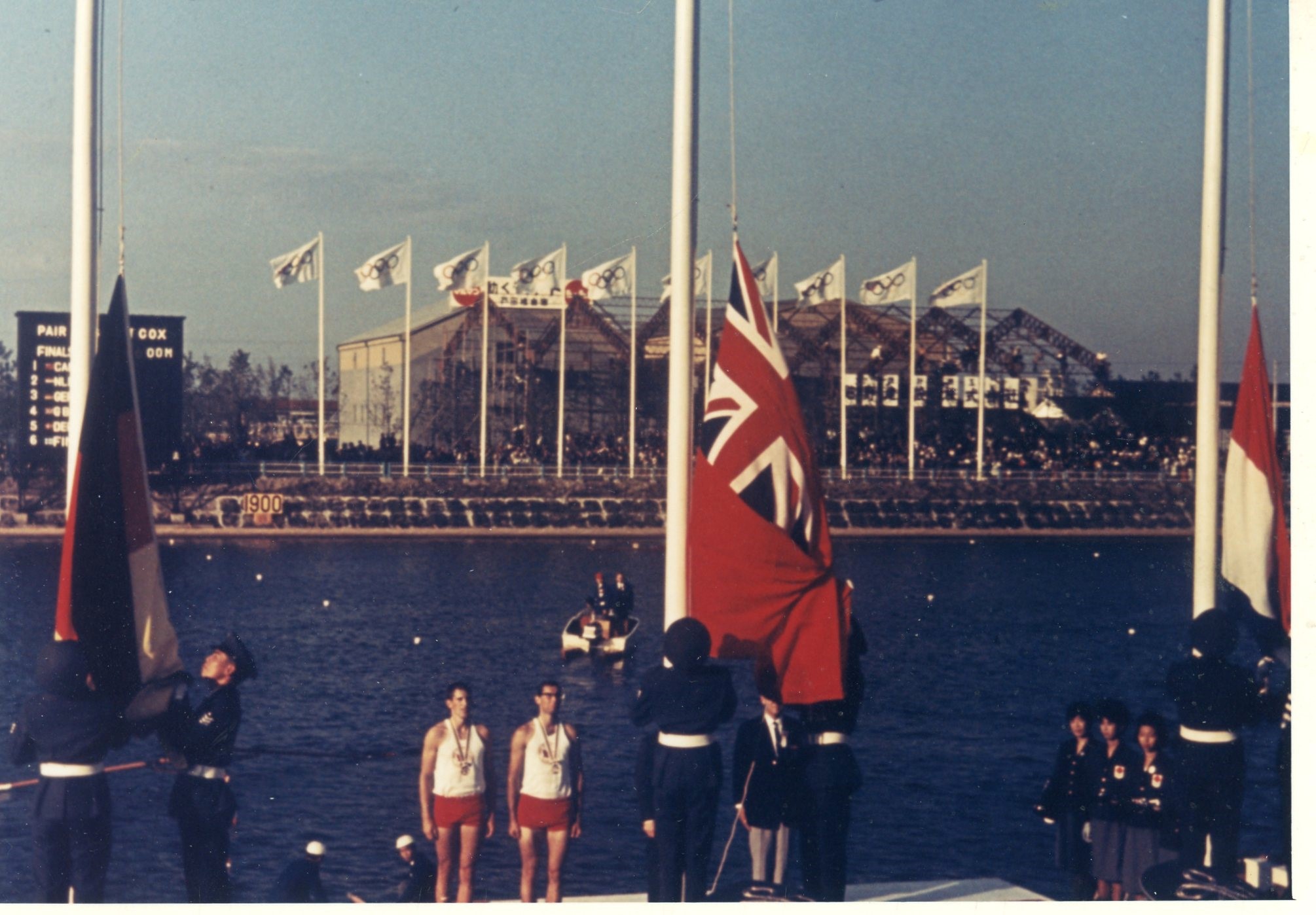
© Roger Jackson
The 1964 Tokyo Olympics, which I competed in, was the Games where Japan really wanting to show the world that they were peaceful, that they were welcoming, and that they really wanted people to enjoy the experience of being in the country. There were some tremendous moments with young children when they would be giggling, laughing and wanting to engage with us. I can tell you almost every detail of the opening ceremony. I can remember the crowd delirious with cheerfulness and welcoming. It was such a warm, engaging Games. It was at these very memorable Games that my rowing partner and I won a gold medal. That night, after doing television and other interviews, we went back to the Olympic Village. We quietly had dinner alone. The only thought in our minds was, “What did we just do?”
I also participated at the 1968 Mexico and 1972 Munich Summer Olympic Games. On reflection, although I had no money, my eleven years of university were spent doing what I wanted to do – rowing and research. The period of my life between 20 and 30 was what I really call “my selfish period”. It is the stage of my life where everything was about me – it was all about university studies, my interest in science, my rowing and competition, travelling, and other things that were part of that. And that was a very special period in my life.
After I finished competing, I went to Denmark and worked in a research laboratory at the University of Copenhagen. And then, I had a call from the Canadian government asking me if I would come back to Canada and head up a sport programme at the national government agency called Sport Canada. And then, I had a request from the University of Calgary to be the Dean of the Faculty of Physical Education. We established numerous new facilities and a research centre. At the same time, because I had experience with funding and government agencies and events as the director of the federal government sport programmes, I was asked if I would work to bring the Olympic Winter Games to Calgary. We started the Olympic bid and won the right to host the 1988 Winter Games. I was also at that time the President of the National Olympics Committee in Canada, so I had the role of being Dean of a Faculty, the President of the Olympics Committee, and an executive member of the Calgary Winter Games Organising Committee. It was a very busy 10 years, but it also opened many doors that led me to where I am today.
Even before being an athlete, I seem to have always been an organiser. I do not know where that trait comes from. When there was something that I thought should be done, I or group of people decided that if it was worth doing, we should do it.
For me, it was never about winning or losing. It was a question of personal effort and being proud of what you have tried to achieve. And you lose as many times as you win in life. I can tell you all kinds of things that I tried and failed, but I could tell you a few things that were very fun, and they worked out. I have rowed races where I almost collapsed and have lost. And, I have rowed other races where I have won fairly easily. It was all about strong commitment to daily training, effective organisation of my studies and fitting in everything else in my life that was the real teacher.
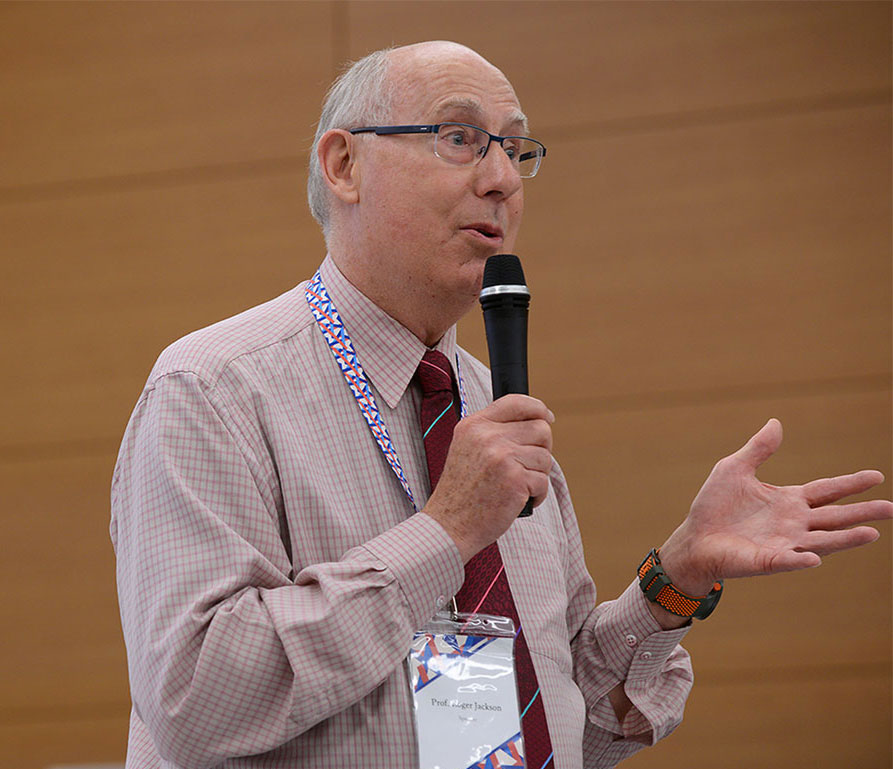
© Yuki Saito
I was the President of the Canadian Olympic Committee when Canadian sprinter Ben Johnson was stripped of his gold medal for doping at the 1988 Seoul Summer Olympic Games. The Canadian government moved right away on measures to ensure that this never happens again. In 1991, we established the world’s first independent, national anti-doping agency. We had started out thinking that we were the Canadian drug-free sport agency. But we very quickly learned that what we really wanted to be was the Canadian ethics and sport agency, where drugs were one part of it – antidoping – and other parts of it were the issues about fair play, inclusion, gender equality, honesty and respect. It is about all those wonderful values that sport can deliver if properly done. So, we changed the name to the Canadian Centre for Ethics in Sport (CCES). And, to bring about education in sport ethics, we also established the True Sport Foundation, a charitable organisation. This is a foundation for gathering funds for carrying out ethics education. Its purpose is to build a strong community by spreading the wonderful values of sport to all ages, not to promote sport per se.
The word “True Sport” was the result of a survey that we carried out on the state of sport in Canada. It refers to “sport with values” and consists of seven True Sport Principles: Go For It, Play Fair, Respect Others, Keep It Fun, Stay Healthy, Include Everyone and Give Back. Today, we can find a vast amount of related activities carried out at a variety of levels not only in Canada but also by the International Olympic Committee and many government agencies around the world to communicate the values of sport.
Communicating slogans is easy, and everyone speaks of how wonderful they are and pledges cooperation. However, it is not an easy task to spread the concept behind the slogans not only to persons within the sport system – such as athletes’ parents and coaches – but also at children’s daily venues of sport, schools, communities and to the whole society. What is most difficult is for individuals to understand the true value of sport, and on that basis take action and communicate with integrity grounded on that true value. We, as parents, as coaches or as person playing other roles must transmit that value to the children.
To me, probably the most important challenge is to effectively promote the values that sport can provide – to young people and to communities –and that the environment for children is safe. True Sport is not bullying. It is not harassment of various kinds. It is not inequality. It is not disrespectful. It is fun. It is safe. It is where children should be. And that, to me, is one of the necessary changes in sport from where we are now.

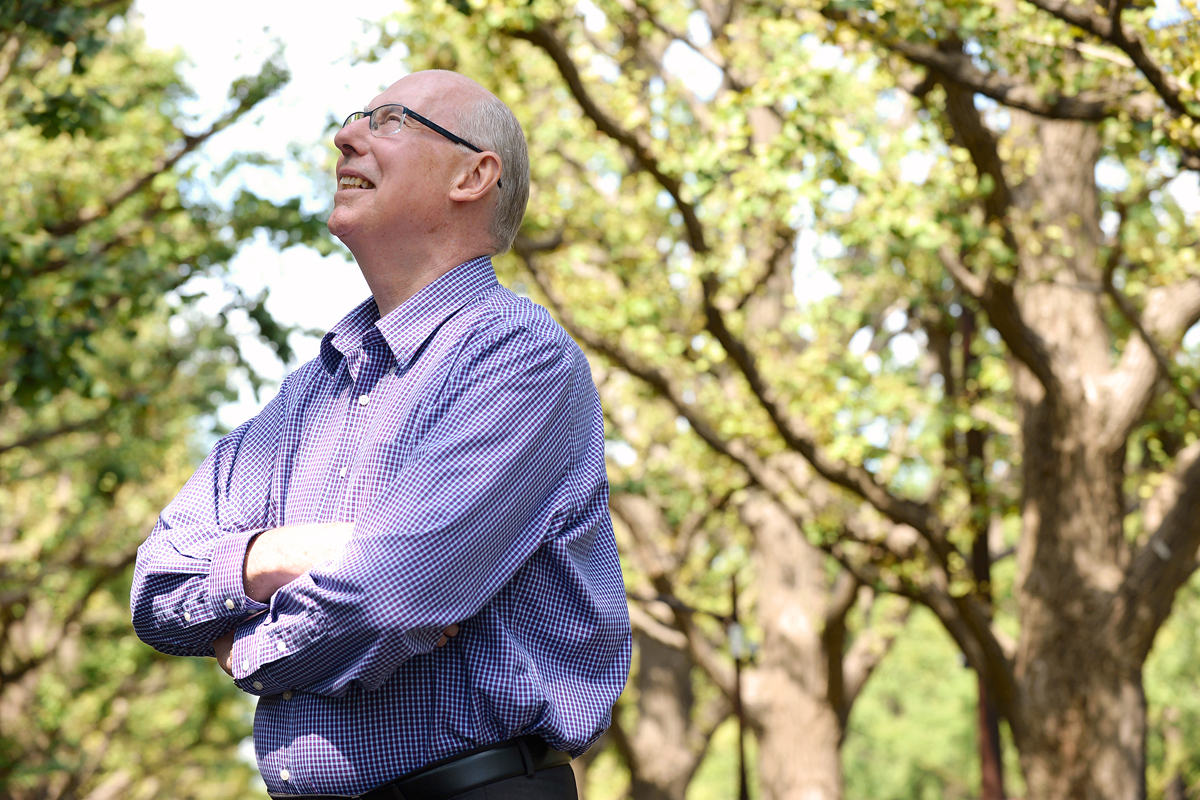
© Yuki Saito
We are now in interesting times when sport itself and the environment surrounding athletes are rapidly changing. In particular, the presence of athletes has changed significantly from when I was competing as an athlete. I can remember many years ago, that I was promoting within the Canadian Olympic Committee the importance of the voice of athletes, giving them more opportunities and taking them more seriously. I said this is going to happen one day, worldwide. Today, because of social media and other means, we can see athletes actually communicating their messages directly to the public. So, we are getting to a point where we are going to be seeing more and more interest by athletes, athlete commissions and other groups who actually try to advance opportunities, fairness, and true sport values. Athletes are becoming really good at being able to understand that they do have rights and that they do have power in their voice. So, I think the athlete voice is going to be the game changer. Actual results that have come about include the Athletes’ Rights and Responsibilities Declaration adopted by the IOC, and the Athletes’ Anti-Doping Rights Act, to be enacted from 2021 along with the revised World Anti-Doping Code. I look forward to seeing athletes lead the way to bring about good changes, and I will support such efforts for the better.
A time for change has also arrived not only in terms of the power of athletes to have their voices heard and spread but also in regard to the Olympic events. The winter programme, for example, is becoming more like the X Games, with snowboards, a lot of rail skiing and aerials, and other events that interest more youth. The need to make further changes to sport programme by looking at the global interests of young persons will probably become even stronger in the future. This is the case for both the Summer and Winter Games. The ultimate goal of such reforms should be to realise sport that is enjoyable for everyone, and to provide a safe and fun sport environment for individuals and communities.

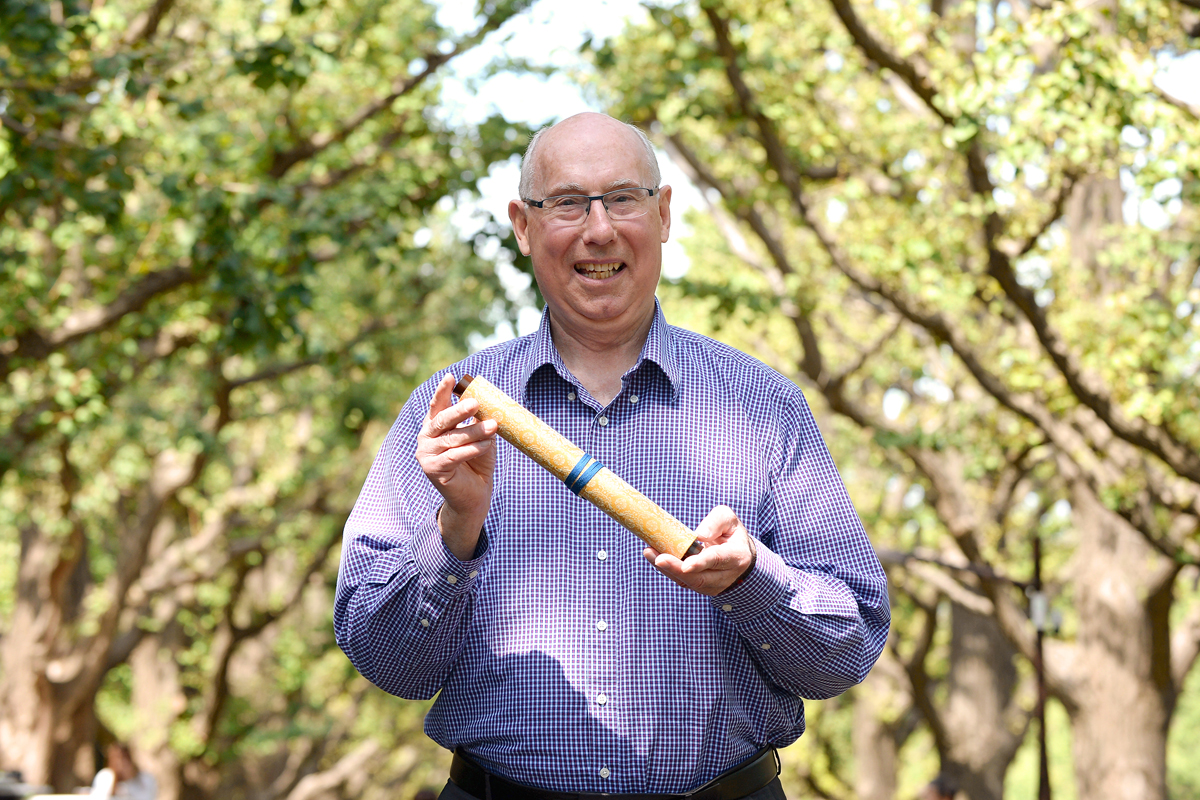
© Yuki Saito
I have been involved for a long time in enriching education at the university level, and in the bidding to host Olympic Games as well as helping organisations host the Olympics. I have launched many projects and worked to raise funds. I think somewhere in me, I am a “builder” by nature, whether it is programmes or buildings or whatever. “Opportunities” is my favourite word. I love trying to create opportunities for students, for sport and for not-for-profit organisations. Generally, the only thing I want is just someone to say, “Thank you,” and then move on.
Former President Barack Obama recently gave a public speech in Calgary, where I now live. He was asked, “What advice would you give to young people?” He responded, “It’s really quite simple. Be nice and be helpful.” Just two things: Be nice. Be helpful. Can you imagine what this world would be like if everyone was nice and helpful to each other? It is something everyone can do, if they want to.
We can all become better persons than we think. Just as my coaches encouraged me and pushed me to greater heights, I hope to inspire in others the courage to move forward. Give them ideas and the time to think about what they really want to do and how they would like to be. I want to help them find their goals, open as many doors as I can and let them know their opportunities are right in front of them.

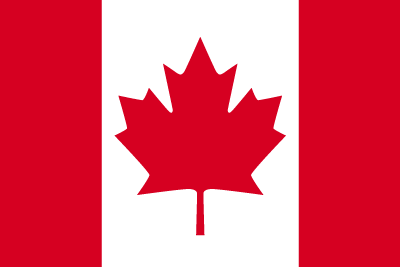
At the University of Western Ontario, he started training in rowing at age 17. He won the gold medal in the coxless pair at the 1964 Tokyo Olympic Games at age 22. He also competed in the 1968 Mexico and 1972 Munich Olympics.
Roger developed Canada’s sport programme as Director of Sport Canada and also served as Dean of the Faculty of Kinesiology at the University of Calgary. From 1982 through 1990, he was the President for three terms of the Canadian Olympic Committee. He was Chair of the Canadian Centre for Ethics in Sport (CCES). He has also contributed as an adviser to cities such as Calgary, Nagano, Salt Lake City, London and Tokyo in hosting or making bids to host Olympic Games.